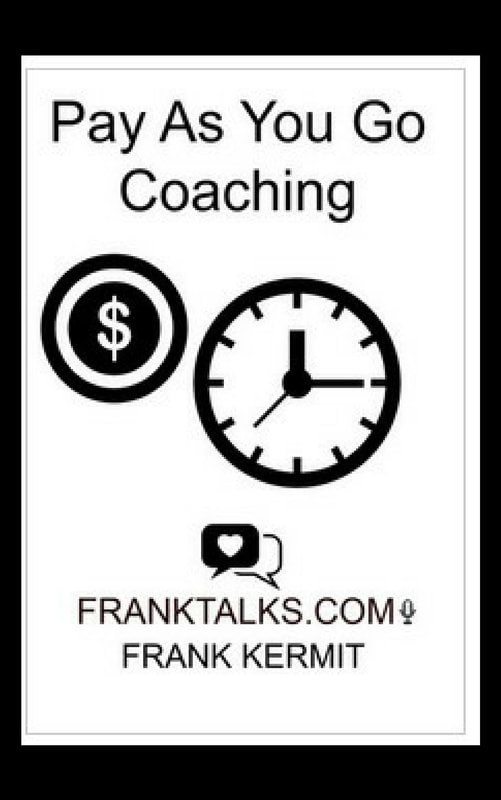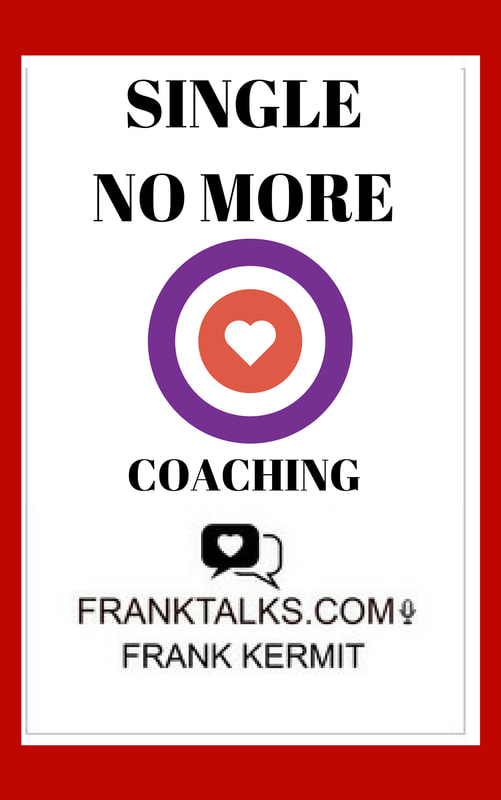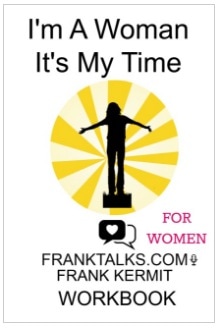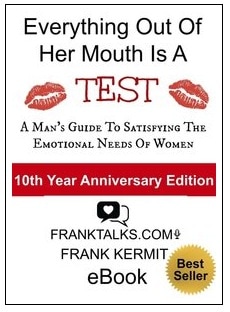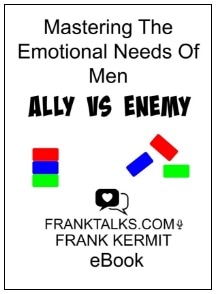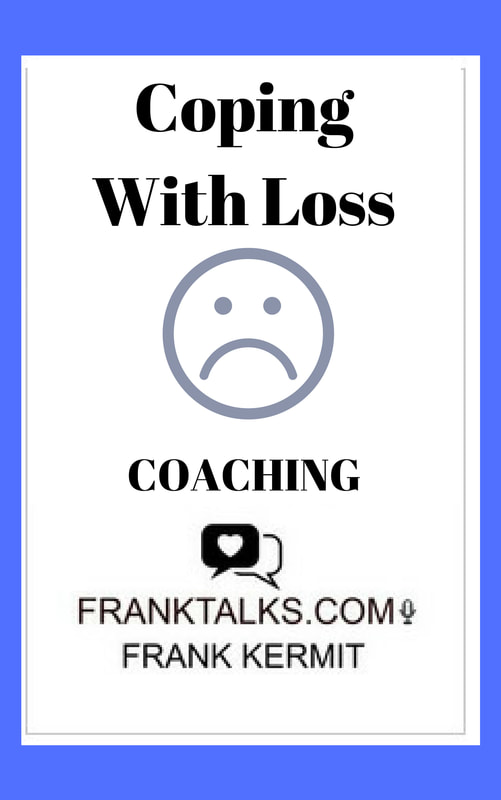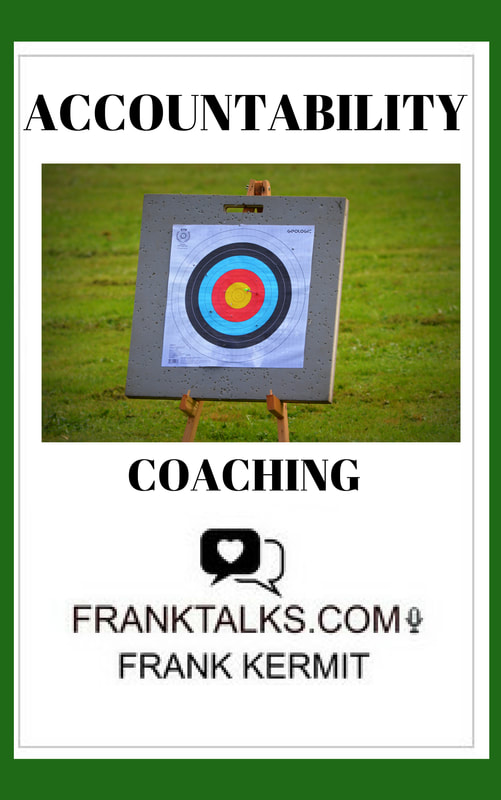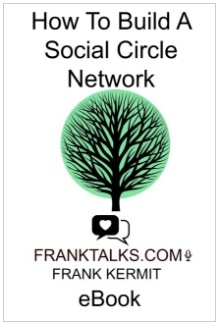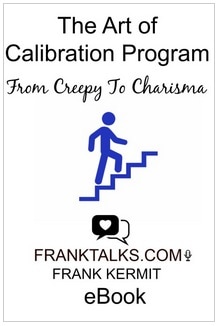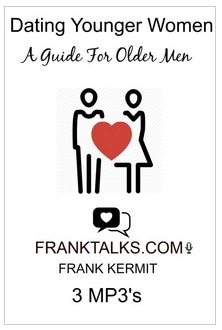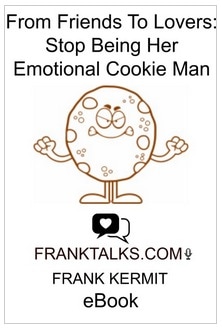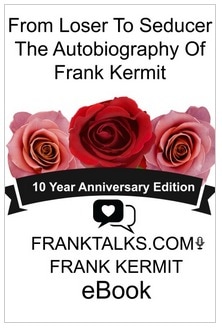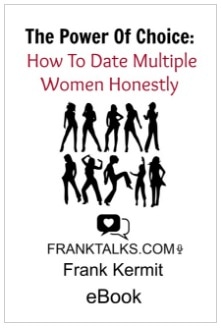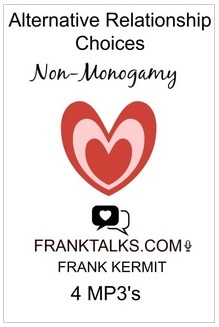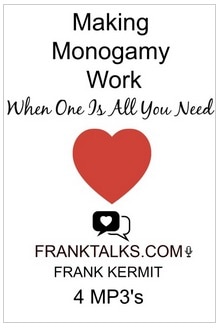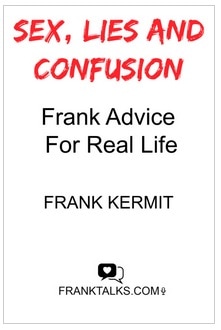|
Ready For Love Game by Frank Kermit This is another group activity I created for one of my weekly workshops. Ideally used with mixed groups of single men and women in dating workshops. It is a little complicated, but it WILL make a point to the group. I have included it in my coaching workbooks: I'm a Man, That's My Job and I'm a Woman, It My Time It may also make some attendees upset. That is the risk you take doing it. Seriously, some of your attendees may get very very upset. Best to do this with people you have worked with for a while, as this game will point out where people self-sabotage and not everyone likes being told how they ruin their own chances at finding love. The premise is that you go to a florist and buy the cheapest flowers you can (in my area at the time, the cheapest were carnations). Each flower will be individually wrapped in cellophane. Ideally aim for a variety of colors, but it is not necessary. The amount of flowers you pick up should be about 20-25% of your group capacity. So if you get 20 people coming to the workshop you need to get at least 4-5 flowers. At the beginning of the workshop you tell them that you are going to play a game called “Ready For Love” and it requires volunteers. You ask for the same number of volunteers as you have flowers. It cannot be someone whose friends push him or her. It has to be people independent enough to volunteer themselves. You as the host cannot ask anyone specific to step up. When you have the number of volunteers you need stepping forward (try to have half be men, and half be women), you will make the announcement that these brave souls have taken the risks necessary to find love. Then give each of them a flower. Tell them: The Flower is a symbol of the Love they have been given, and the love they will risk giving. It is a symbol of how much risk someone is willing to take when it comes to dating and finding new love in his or her lives. Each flower holder is then given a choice. The choice is you can either 1-Give the flower to anyone in the room (regardless of gender) that you want; it is a SYMBOL that you are ready for a potential opportunity at love in the future (with no guarantee that you will ever give get it back – people cannot make “deals”) or 2-Hold on to the flower as a symbol that you would rather hold on to this first chance at love, not be open to new potential opportunities for love in the future (but again are not guaranteed) Rule: You cannot give a flower to someone that already has one. At that point those flower holders who still hold their flowers may sit down, and those who are ready to give it away, find someone in the room to give it to. Rule: Anyone without a flower can step forward and ASK to be given a flower when it is time for the flower holders to give a flower to someone. Make sure you assistant keeps track on who gets up to VERBALLY ASK for a flower. They have to verbalize it. Standing up is NOT enough. They have to verbally ask the group of flower holders. Each person must find the courage within to ask individually. They cannot ask as a group (if you need your friend to help you ask for love, you will die alone). Each person can ONLY ask once the entire nightlong. After they used up the once, they can no longer ask for love. Everyone get this one turn including people that have had a flower already, gave it up, and have yet to ask for one again. As the host, you MUST keep track of each flower and who first volunteered, who held it, and who gave it away, and who got it. Get an assistant to help you keep track. It will be important later. Through the course of the workshop, continue with your lesson plan and every little while, you will again ask all the flower holders to step forward and give them all the same choice: 1-Give the flower to anyone in the room you want as a SYMBOL that you are ready for a potential opportunity at love (with no guarantee that you will ever give get it back – people cannot make “deals”) or 2-Hold on to the flower as a symbol that you would rather hold on to this chance at love, not be open to new potential opportunities for love in the future (but again are not guaranteed) Those that hold their flowers still, sit down. People who get up and VERBALLY ASK can ask those that want to give their flowers. The flower giver must choose to give it to someone that asks or they can give it to someone that has not asked. It is their choice completely Once the flowers have been passed on, and you have recorded who got them, and who gave them, who asked for it, if that person got it, and who has held on to the flower refusing to pass it along. In order for this to work, you have to run this a number of times. If your workshop is 3 hours, try to get in 10 runs of the game (run two, one right after the other to see how that changes it for people). It should not be a predictable pattern (every 20 min). Over the course of the game you will notice that some of the same people might get a flower each time they are available to get one. You will also notice that some people will not get any flowers at all, and not even ask for one, nor ever volunteer. What you will discover next is how the entire metaphor of the Flower as being Ready For Love is just a symbol for why the people in the group are still single. Now it is time to explain why the host (and assistants have been keeping track of who did what and how often). There are points assigned for every action taken and for every flower received. Points: (you do not tell the attendees that you were keeping track of points) Each person that was the first to volunteer gets 10 points if they gave their flower away If the first volunteer holds on to the flower during the first give away, they lose 9 points, and only get 1 point Each time someone gives away a flower they get 5 points Each time someone gets a flower they did not ask for, they get 1 point Each time someone gets up to ASK for a flower, they get 10 points If the person asking for a flower gets one, they get an extra 5 points (15 total) If the person holds on to the flower, they do not get or lose points at all. (Zero) They stay the same. When you tabulate the points you will find that the people who volunteered and who asked for the flowers tend to have the most points. Those people that refused to participate could have zero points. Then there are those in the middle. Now for the secret...the points are meaningless (for the most part). It is not based on the number of points you have that will guarantee that you find love. The ONLY thing that the points reflect is your willingness to be READY FOR LOVE. Just like life does not guarantee results, neither can you. However, the people that put themselves out there the most are the ones that have the best chances for love. The Lesson Each point represents a chance at love. But just like in life, if you block yourself from taking chances on new opportunities for love, because you are too obsessed with the “flower” in your hand at the moment, you will not find a potential soul mate. You need to be open to love in order to be READY FOR LOVE. THAT is the point of the game. To remind everyone to be open to meeting a potential soul mate. Every 5 points represents the number of soul mates you will meet over the course of your lifetime. The more you put yourself out there, the more soul mates you will meet over the course of your life. Sometimes you might get lucky that someone likes you enough to make a move on you (give you a flower without asking). If you are LUCKY enough to be attractive to others, you get a shot at collecting enough opportunities to come across a new soul mate. That is still no guarantee it will work out. But you have a bigger chance at meeting someone. The people who initially volunteered as well as the people that got up and verbally asked got the highest point. They represent the ones who are willing to ask for what they want and to volunteer to take the risk to be Ready for Love. They get 10 points (which means they have the chance of meeting two great soul mates throughout their love lives). The people who volunteered at the beginning, but who did not give the flower away represent the people that were too attached to their first love, and closed themselves off from new opportunities for love. Thus they only get 1 point (the same amount of points that someone gets when they are just lucky). One point alone is not enough to get to them a soul mate. Each time someone gives away a flower, that person gets 5 points. These people represent what it takes to increase your chances in your love life to meet as many soul mates as you can. You do not get love by hoarding it. You get more love by giving more love. If a person gives away a flower every time he or she gets one, by the end of the night, that person will have great chances to meet a number of soul mates in their love life. (All symbolic of course). Each time that someone gets a flower without asking for it, they get 1 point only. They represent the people that just get lucky in their lives. 1 point is not enough, but if they are lucky enough to get 5 flowers without asking, they can achieve 5 points by the end of the workshop and earn the chance at having one soul mate in their love life. Each time that someone asked for a flower and got it, they get a total of 15 points (10 for asking and a bonus extra 5 for actually getting one). They represent what it takes to have the BEST chances of finding real love. They have learned to ASK for what they want, and just the fact they have put themselves out there gives them high chances to meet a soul mate. If they get a flower, whether it is because no one else was available at the moment to ask (timing does play a factor), or because there was something about the person that the flower giver liked, it means they are READY FOR LOVE in both taking a risk and asking for what they want. There will be people that get no points by the end of the night. Or only get less than 5 points because they did not get a flower by luck enough times or held on to a flower and refused to pass it along. These people represent those who have given up on dating. They did not volunteer, they did not ask for love, they just waited to see if they would be lucky enough if love came to them. Just like in life, if you do not put yourself out there and go for it, you will miss out. What I found eerie is how this really translated well to how people really are in their loves lives. Those that did not want to take risks or ask for the flower, knowing what the game represented (something you must enforce as the host), are the same ones that will not go for it in real life. Those that get obsessed over the most inexpensive flower, tend to be the same personality types that put too much emphasis on a past relationship and struggle to move on. Those that get the point of the game gave away their flower each and every chance they could, understand that the issue is not the flower, or the neediness for the flower; it was about putting something out there. And finally, what ends up happening is that the person that gives the most flowers away is also the person that gets the most flowers back, because although no one is forced to give it back, they just do, because he or she gave them “love” first. A complex game, but a really powerful lesson if you play it correctly; but the worst part? Listening to people’s excuses after the workshop why they did not want to volunteer, ask or give up their flowers. Just like in real life. The ones with the least amount of love have the most excuses. #singles #dating #events #eventplanner #eventprofs #eventplanning #event #parties #eventdesign #eventmanagement #conference #venues #eventstyling #partytime #drinks #dubstep #festival #valentinesday #bemyvalentine #feb14 #single #singlelife #dating #meetup #mc #matchmaking #matchmaker #match #coaching #valentines
0 Comments
The Charisma Game by Frank Kermit This is a Group Activity I created for you to practice with others. I created this for use when I was running weekly workshops for single for dating. I have included it in my coaching workbooks: I'm a Man, That's My Job and I'm a Woman, It My Time The premise: Each person in the room will offer one compliment to every other person in the room, WITHOUT expecting a compliment in return. When someone compliments you, you are instructed to simply say “THANK YOU”, without offering a compliment back. There are a few different ways to do it. For a larger group, have them walk around without saying a word, approaching as many people as they can. When they get face to face with someone, they must offer a compliment, without expecting one back, and the person being complimented must say. “THANK YOU” before saying anything else. For smaller groups, or groups of people with limited mobility, you can have everyone sit in a circle and each person takes a turn in complimenting all the other members in the group, one by one. In this set up, allow everyone some time to write down their compliments to others in the group without having anyone share them. Smaller groups ideally have everyone wearing a name-tag (use first name or nickname) Finally for very small groups of people who are horrendously shy, you can resort to people writing down the compliment for each person on a number of pieces of paper, then all the papers are collected and the host of the evening will pull out each one and read them out loud. Do not use this one unless in extreme circumstances. It is a last resort method of doing it. It does not reach all of the goals needed. The compliments can be superficial. It can be based on a physical feature like a smile, complimenting the person’s eyes, mode of attire, or style of clothing. If you start the group meet with the Charisma Game, most all of the compliments are going to be superficial, as most people will likely not know each other. If you run the Charisma Game 3-4 times over the span of the group meet (which is the way is usually works best), at each start of the Charisma Game you an instruct people to compliment how the person has participated in the group meet thus far. Very important to keep in mind; Instruct everyone that compliments are to remain appropriate and be non-sexual in nature. Do remember that some of the people who attend such group meetings are very socially awkward and may not know what is and is not an appropriate compliment. So offer some guidelines as to what is and is not an appropriate compliment. Finally, set a time limit. The Charisma Game is to happen for a 2-4 minute span at most with medium sized groups. You do not want the same people pairing up during the same segment of the game. The point of The Charisma Game is: -To teach people that going up to meet a stranger to make that person feel good is OK to do -To teach people strangers coming up to meet you and attempt to make you feel good is OK to do -To teach people how to simply accept a compliment (Which some people have a hard time doing) -To teach people that saying THANK YOU is enough, and not to feel obligated to compliment back just because someone complimented them first -To teach people not to expect anything back and not be attached to an outcome when they try to meet someone new -To build up people’s confidence in being able to compliment others, and for people to have their confidence reinforced by the compliments of others -To give people a chance to meet each other in the group settings are going to be regular ongoing meetings -To teach people that the more times you approach the same person over the course of the workshop, the easier it gets each time, and carry that comfort outside the workshop space The Definition of Charisma as I teach it, is to make a person feel good about him or her self, while at the same time present a positive impression of yourself to them. If you can do that, then you have Charisma. THE ART OF CALIBRATION PROGRAM: FROM CREEPY TO CHARISMA EBOOK The use of compliments is how you make a person feel good. HOW you compliment a person without the pressure of expecting anything said in return is how you start to train yourself to make a favorable impression of yourself in the process. Some of the things that would happen is that people from the workshop would get used to talking to people they liked as well as talking to people they did not like, which is a good social skill to develop. Some of the people would approach me afterwards and tell me how difficult the first few were, but once they got used to it, they felt more comfortable as they did it more often. Some people would take me aside and complain that everyone complimented him or her on exactly the same thing (for example, everyone complimented one person on her hairpin, and never on anything else). If this happens, it is a sign for the person to “step up” and give people something else to compliment. It is a great way for someone to learn they may not come across in the ways they thought. Get a group of people together and try it. Good luck! #singles #dating #events #eventplanner #eventprofs #eventplanning #event #parties #eventdesign #eventmanagement #conference #venues #eventstyling #partytime #drinks #dubstep #festival #valentinesday #bemyvalentine #feb14 #single #singlelife #dating #meetup #mc #matchmaking #matchmaker #match #coaching #valentines '10 Questions people ask authors' By: Author Lory La Selva Paduano The mind is a mysterious place for many. I've found comfort and sheer enjoyment in the great accolades that were given to me by my readers, friends and family. On some levels, we're all a tiny bit curious of what goes on in an artists life, a writer, novelist, author, poet, is one who creates and implements words and worlds into a book, they may never publish, but here's what happens to many that do, and I'm pretty sure most of you can relate, and my answers are strictly from experience and speaking for most of us. 1) Do you make money writing books? Normally this isn't something you ask in the open, but it has happened to me on several occasions, and it baffled my mind a little, till I gave it some thought. My instant reaction was, ''Oh my! They did -NOT- just ask me that!" and I wouldn't dare ask them how much money they made, never! The answers are simple, all you do in the publishing industry is totally up to the author, I felt like I was being judged and sized up to what real value I held in life and in this industry! Of course I shrugged it off and wore the biggest smile ever and answered correctly. ''I do well, but there's always room for improvement''. 2) Is that a real Job? When natural instincts kick in, it's quite normal to have a chuckle at such a comment, it isn't to belittle anyone, it just reminds the author of all the sleepless nights we incur, the stopping by the road incidents to jot down words before we forget them, and the back pains, wrist and forearm pains we get from excessive writing, well, you get the picture... right? Many of us put our life on hold to entertain the world, I know it's happened to me when I wrote my first series in 11 months, consisting of 15 hour days or more, some take more time with their work, but they still go through many obstacles to get the job done, and it is a real job! 3) Why aren't you ''New York's best seller''? The million dollar question! This question doesn't baffle me at all, it's actually a great question, and I'll tell you why! Not every author wants to be a ''New York's best seller'' there are a million avenues to take if an author wants to go that route, it's a costly procedure and believe me, not everything in life is free. Some like to remain low key and serve only their audience, and there are those who will dedicate their entire life to making that happen in short - It could literally take years before one gets there, and it doesn't mean the work isn't worthy, what makes our work invaluable is our reviews on major retailers sites. 4) Why aren't your books on the shelves? If I had a dollar for every time someone asked me this question, well, you all know... A valid question indeed! It's normal for all to inquire, and the most popular reason for this question was because many readers hang out in book stores and prefer to purchase off the shelf. Again, it doesn't mean the book isn't shelf ''Worthy'' it sometimes has to do with book store policies, consignment agreements and all the documentation that goes with it etc. My books are on shelves already, at Chapters Indigo, Canada. The internet is a vast paradise for shoppers, a major retailer site like Amazon, is so dependable and safe, I mean, who doesn't want items shipped to their door! 5) I want to write a book about my life! Should I? A cool question for sure. I encounter this statement and question 9 times out of 10, really everyone wants to write a book about their life! F.Y.I - Not all books worth reading are bio's. It's not a lucrative investment unless you were some sort of celebrity before, with all due respect to all. Writing a bio can be stressful, many emotional trauma's resurface while writing, it takes a toll on many, and the question you need to ask here is - ''Can I make them care enough to purchase''? - If you can devote all your time on marketing yourself and are sure it's worth a shot, then by all means go for it! It won't be an easy task, so make sure you got a great marketing campaign and loads of money to make it happen. 6) Why don't you write in another genre? Another super question here. Usually a seasoned writer will want to go that route somewhere down the line, right after they've written what their hearts desired to write in the first place. Cross genre is dangerous to those who want to be noticed in the industry. It isn't recommended especially if you've become established in your previous works. It turns off the readers and followers and you're expected to deliver in the same category time and time again, readers get comfortable with you and dislike any changes an author makes. 7) I want to become a writer, where do I start? All tools are readily available on line. What does this mean? It means you don't need me to tell you what your needs are best suited for, only you can decide where you want to take your skills, passion or curiosity. I can only say, if you're serious and committed you'll find a way, I'm open to answering questions of course, and as always, I do recommend searching the internet and speaking to other authors. 8) I'd like to see an extended version of your series, can you add other books to it? I love this question, it makes my heart skip two beats! I've been asked this several times, and it's really sweet. An author is usually consumed after writing a series, I know I was, physically and mentally. If the author can't give more at the time he or she is being asked, there are probably valid reasons for it, some are open to discussing it, and some are more reserved. It isn't without careful consideration though, many books have made huge come backs example; Harry Potter. Don't fret, the author is sometimes having trouble getting back to that place, or is usually really busy with other stories that are taking over their present mind. Anything is possible though! 9) Where can I buy your books? (See Links in the Author Bio below) Most Indie and self published authors are pretty much everywhere on the web! Like I said previously, Amazon, Barnes & Noble, Chapters Indigo. For some, it may even be on Walmart on line, e-bay, and all other local and small online book stores you can think of. Always punch in the authors name for the best result and narrow down your search! 10) How do I stay updated on your future works? Most Indie and self published authors are on social media. Many of you know me here personally and professionally. You are also our fan page followers on facebook, and so many other places like Twitter also. If you aren't, now is a good time to accept invites to our pages and keep up the pace. Hope you had a great time reading, I only wish to educate and shed some light on all we do and what it all means. If you liked this blog, please share with friends! Cheers - Lory.  Lory La Selva Lory La Selva Author Biography Lory La Selva Paduano has always held a profound love for historical fiction. As an avid reader herself, she has always been inspired to tell stories in captivating settings surrounded by intriguing characters. She is the first to say she adores the genre she vividly brings to life. A mother, wife and published writer, blogger, her life's experiences inspire her to be the best she can be, whether it be in her novels, or in real life. For more information on Lory's books and upcoming work, please visit her Facebook page: https://www.facebook.com/KingCamden She wrote five books to date. One is similar to Game Of Thrones (G.O.T.) to which she blogs about every week. She loves traveling, and is currently working on more books, so look out for her. When you need a Game of Thrones (G.O.T) fix out of season! She's your gal! Check out her Books Here: - Wonderland Series - https://www.amazon.ca/dp/B074DWPKXK/ref=cm_sw_r_cp_dp_T2_bf1Gzb6WPWSHD - Khafa The High Priestess - https://www.amazon.ca/dp/B01MQJZVUZ/ref=cm_sw_r_cp_dp_T2_kh1Gzb6THZYNM - The Legacy of a Legend - https://www.amazon.ca/dp/B073VN91NV/ref=cm_sw_r_cp_dp_T2_8h1Gzb9P4H57S 4 Communication tips for couples are highlighted in this contributed post. A rocky patch in your relationship can cause distress to both sides. It can affect your work, your social life, and your family life too, especially if there are children involved. While it may feel like your relationship is coming to an end, ups and downs are very common in relationships, and you may be able to work through your issues to make it out the other end happier and more content. Take a look at some of the solutions below that could help you both work through your issues to get your relationship back on track. Talk
Communication is key to a healthy relationship. However, this is one element that many people struggle with, and it’s poor communication that can ruin a relationship. Talking through your issues is difficult, but if you can do so in a way that is non-argumentative and simply expresses how both sides feel, you may find that there is an easier solution to your problems than you realize. Take some time to really talk to each other about the things that have been bothering you for a much healthier relationship where both sides feel heard. Counselling You may not really know much about couples counselling, or feel that it is not for you, but it is something that helps thousands of couples each day to enjoy healthier, more honest relationships. Whether you have problems communicating with each other, you suffer from sexual intimacy issues or anything else that may be causing your rough patch; couples counselling could be the thing that brings you both together again in a safe and open space. Get away from it all Sometimes it’s outside factors that cause our relationships to suffer. If work is affecting your relationship for example, or even one person having a much more active social life than the other, then a vacation could be just what the two of you need. Putting physical distance between the issue and your relationship could be beneficial, and a vacation will give you both the chance to relax without distractions to leave you both feeling much happier when you return. A vacation will also help you establish some perspective so that when you return, you can find ways to manage your workload better or prioritize your relationship over late nights with friends to help you refocus on your relationship. Spend more time together Sometimes the issue can be that you’re just not spending time together. It can be difficult if your schedules clash, or you’re in a long-distance relationship, but these are issues that can be resolved by spending more quality time together. Try to spend time together, enjoying date nights that are free from distractions (that means keeping your phones away!), that let you both catch up on how you’re doing and enjoy each other’s company. Relationship issues can be difficult, but for many people, they are a phase that will disappear with a bit of work. It’s important to remember that love is not a power play, so it’s important to treat your partner as an equal and ensure that they do the same in return. It’s difficult to deal with issues, but tackling them head on will benefit your relationship and make you both stronger for it. Love is Not A Power Play: A New Constitution For Conscious Relationships by Arun Eden-Lewis I realized in my late teens that attempting to blame and shame white people into giving me a break by regularly reminding them of more than 400 years of slavery was counterproductive.When, eventually, I let go of my anger and embraced forgiveness, I noticed that people (for the most part) started to treat me not as a black man, but simply as a human being. Similarly, reminding men in every discussion on gender parity of hundreds of years of patriarchy, not only to justify the drive for equality but also preferential treatment and sometimes abusive behavior, is also counterproductive. I am not suggesting we forget the injustices of history but I am suggesting we lay them to rest and forgive the sins of our fathers in order to progress together. Recently, I wrote an article on the commonly-asked question, “Where have all the good men gone?” It generated a lot of heat, as well as plenty of constructive discussion. We have come a long way since the suffrage movement of the 19th century, but clearly there is still some way further to go to achieve genuine gender equality. The challenge we now face is to realize that equality for women without simultaneously tearing down men to achieve it. In our work and all our endeavors together, as conscious men and women, we must stand up for equality together, knowing that one day we will be equal, not only by the laws of the land but also in our hearts and minds. Presently, we seem to be caught in a destructive dynamic of battling sexes, but I believe we can find healthier and more constructive ways to achieve gender parity. Our challenge is to adopt more balanced policies of cooperation, rather than the competitive and adversarial tribalism so apparent in many of our current institutions, sociopolitical systems, and modes of thought-behavior, rooted so firmly in outdated paradigms of “us against them.” I believe our society can evolve beyond these adversarial paradigms—evolve consciously and purposefully in our core humanity and genuinely embrace equality, not just in the letter of our laws but also embrace the spirit and ideals of equality where no laws are present. We appear to live in a society where the system is geared to please some of the people some of the time. No single system known can please all of the people all of the time. However, I believe we can and will create a more humanitarian and tolerant society that pleases most of the people most of the time. I believe we can form more harmonious unions, cultivate domestic and occupational peace, encourage the common defense of justice, promote general welfare, and secure the blessings of equality in our pursuit of happiness, through an evolved “constitution of conscious men and women.” Dating dynamics: Perhaps the two most destructive elements in many modern relationships between men and women are the “power struggle” and the “jealousy game.” These two modes of behavior are often intertwined and their definitions blur each into the other as a consequence. But what is clear is that once these insidious games are initiated, a relationship is usually on a countdown to self-destruction. The power struggle is essentially the game couples play to determine who is the protagonist in the relationship. This inevitably creates a dynamic where the potential protagonist is both actively and passively being opposed, rivaled, and competed with by the antagonist. In essence, the lead and supporting actors are trying to steal every scene from each other. What makes the power struggle so complex is that, in any given situation, the roles of protagonist and antagonist can be and often are reversed. The power struggle involves controlling the activities of a partner, where they go, what they do and who they do it with. It involves the habitual criticism, shaming, and ridiculing of what a partner says, does, and how they say and do it. These power plays are designed to achieve one thing: to undermine the self-esteem and confidence of a partner, and, conversely, to make the perpetrator feel empowered. But empowerment obtained from the debasement of another is not true power, it is merely a temporary tyranny. One of the most destructive tactics used within the power struggle is the jealousy game. Indeed, a game within a game only adds to its virulent nature. The jealousy game involves flirting with members of the opposite sex, and being sure our significant other knows about it. It involves letting our partner know just how attracted we are to celebrities and stars, implying our partner’s comparative success is inadequate. It involves habitually bringing ex-partners into conversations to provoke the green-eyed monster. This tedious tit-for-tat game rarely, if ever, has a happy ending. Increasingly, the 21st century extension of the jealousy game is to use an electronic device of some kind—a computer, a tablet, but especially a smartphone—as a way of denying organic attention to a partner. These devices are an essential part of modern life, no doubt, but in the context of the Power Struggle they also serve as a way to detach from and passively dominate partners. When the Power Struggle inevitably spirals out of control, tempers flare into heated arguments, often leading to verbal and or physical violence. But we should note that, by the time conflict has reached this boiling-point, it has usually been preceded by protracted mental and emotional violence in the form of the simmering Power Struggle. This raises the phenomenon of “toxic debate.” Toxic debate is characterized by discussion that is no longer based in calm, logical, or rational argument, but rather in high emotions, degrading language, and name-calling. It involves attempted character assassination, blaming and shaming, raised voices and, sadly, raised hands. The solution? Awareness of the game itself allows us to consciously choose not to play by its rules. If you find yourself caught in the power struggle and calm, rational, non-blaming discussions do not change the relationship dynamics then walk away from the partnership before the real damage is done. Refuse even to participate in toxic debate. Love is not a power play; it is a stage where we can be strong or vulnerable and feel entirely trusted, trusting, and safe. Conscious men and women understand this and, increasingly, are making far better choices regarding who they date. The less conscious among us are so conditioned by the rules of the power struggle that they are either unwilling or unable to engage in a different and healthier way of being in a relationship. This kind of person, often unconsciously, sees compromise and fair-mindedness in their significant other merely as an opportunity to exert control over their partner. Date them at your peril. Marriage and family: Because of the emotional and financial risks attached to modern marriage, it is reasonable to understand the unwillingness of some to invest and trust in the institution. If we find ourselves in a relationship where only one partner wants to be married, then the prudent attitude for this partner is to accept the choice of the other partner, hard as it may be to do. Pressuring someone into marriage is not a fair indication of love or commitment, from either party. Hopefully, by the time a couple decides to get married, all the power plays would have been rejected in favor of trust, equality, and love. Sadly, there is on average a 50 percent chance modern marriages will fail, usually because the Power Struggle either continues from the preceding dating days, or it has been lying dormant and manifests once the knot is tied. A marriage between a conscious man and woman is an equal partnership, there is no protagonist or antagonist, no lead and supporting actors—rather, it is an ensemble piece. Cooperation is preferable above and beyond competition. Flexible interdependence is preferable above and beyond strong independence. Conscious caring is preferable above and beyond cloying codependents. The conscious husband and wife have clear and defined roles. That is not to suggest roles are fixed and rigid, but rather that all the responsibilities of marriage are known and shared, so that both parties feel equally valued and of value. These shared responsibilities and values cannot and should not be prescribed here, rather they are the prerogative of each couple to establish for themselves with open, honest, and fair-minded conversations. Often the guidance of an impartial arbitrator is helpful, in the form of a qualified counselor or perhaps parents from both sides of the family. Regarding divorce: Now is an appropriate time to pull aside the romanticized veil of marriage and see it, not only with the rose-tinted sentiments of love, but also with the clear-lenses practicalities of a business. There is no doubt that love is the most beautiful business when it goes right, but when it goes wrong it can be the most terrible and brutal. Prenuptial agreements can avoid long and costly disputes in divorce. Prenuptial agreements can be shaped and tailored to the specific requirements of each marriage: to protect assets, to define the distribution of property upon divorce, to protect one party from assuming the debts of the other, conditions of alimony, and much more besides. Generally, the issues of child support and child custody cannot be included in a prenuptial agreement, but rather the courts usually determine for themselves what is in the best interest of the children on a case by case basis. As the parameters and legality of prenuptial agreements differ from state to state and country to country, it would be advisable to consult an appropriate solicitor to clarify the laws and conditions applicable to prenuptial agreements relevant to each region. Increasingly, the conscious man and woman seldom enter into marriage relying solely on faith and good fortune to see them through. They also employ the prudence of the law to insure their rights. We routinely insure everything from our pets to our vacations–it makes perfect sense then to insure, to some degree at least, our marriages also. War in the workplace: Next to our homes, the workplace is probably the fiercest battleground in the war of the sexes. There are so many issues to attend: equal opportunity, equal pay, sexual harassment…too many topics to fully cover here. So, I will take a broad stroke instead. One of the less obvious perpetuation of the gender war in the workplace, but not exclusive to it, are the mindlessly repeated slogans of our social conditioning, “men can’t multi-task,” “women are too emotionally unstable for positions of authority,” “men have better spatial awareness than women,” “women mature quicker than men,” and on and on it goes ad nausea. These kinds of prejudicial attitudes are often sugar-coated with a dose of worn-out humor to help us swallow the bitter pill, or worse, still supported by some spurious scientific study to reinforce stereotypes that belong firmly in the past. A word of caution, though: These kinds of wayward attitudes do not require zealous politically correct thought-police to name, shame, and punish the guilty, but rather civil conversations between colleagues, many no doubt previously unaware of the damage this kind of insipid social conditioning does, and how its prejudices creep up on us slowly and become normalized. Take “women can’t read maps” or “women are more intuitive than men,” for example. These kinds of socially engineered viruses are often received from some gossipy glossy magazine or tatty television segment, backed up by a suitably bespectacled doctor, professor or scientist, then endlessly recycled via social-media. Before we realize it, they have become universal truisms, but fortunately for the conscious men and women among us, they do not become the universal truth. Since the birth of science, human beings have used its discoveries to attack each other. We should not use the perceived legitimacy of science, in all its forms, to legitimize beating each other over the head, metaphorically or literally. The authority of a white laboratory coat, so to speak, should only go so far before we stop to think for ourselves, otherwise science becomes little more than an unquestioned religion. When we stop throwing these neuro-sexism slogans at one another the workplace will become a much friendlier environment to spend half of our lives. When conscious men and women are friends, the possibilities in life are endless. We can work with each other as equals, rather than continually competing against one other. Studies and statistics are but a beginning, not an end to issues of equality: Through research, I have found studies and statistics that either reinforce, refute, or re-evaluate the many gender issues in discussion here. For example, research on the wage-gap will provide pertinent information outlining its reality and how to redress it, and other credible research claiming laws currently in place guaranteeing men and women equal pay for equal work have all but eliminated the pay-gap. So, it seems that we are waging a war of the sexes, not only in the bedroom and the boardroom, but also in the sciences and study groups funded both by governments and private organizations. The findings of these studies are then used to legitimize one political agenda or another. But, as the phrase made popular by Mark Twain goes, “There are three kinds of lies: lies, damned lies, and statistics.” We must then also give trust to the day to day experiences that we share with the men and women in our own lives. How are we treating and being treated as fellow human beings? We are in the midst of the so-called information age, but it is possible to rely too much on the information we are being fed through the media and social-media and not enough on our personal experiences, which may give us a more complete and real-world picture regarding what is actually happening with issues of equality and social justice in general. In the process of gaining and maintaining equality, conscious men and women must guard diligently against falling foul to the same misdemeanors of those clinging to the old adversarial patterns and power struggles. Let us not seek to satisfy our thirst for equality by drinking from the bitter cup of anger. We must always conduct our struggle from the platform of patience and compassion. We must never allow our protests, passionate though they are, to degenerate into verbal or physical violence. And if such violence are perpetrated against us, as is so often the current trend, we must rise above them, meeting aggression with fearless and peaceful determination. Now is the time for armistice, now is the time for conscious men and women to walk away from the brutal battlefield of the warring sexes and to lift up our fatigued faces to the sunlight of gender equality and social justice. There will always be those unwilling or unable to change. However, conscious men and women are not gender evangelists, we do not seek to change sour wine into sweet, but respectfully agree to disagree and peacefully allow the naysayers to go their own way. In the course of our progress, it becomes necessary to dissolve certain modes of being belonging to previous times and to assume, instead, the equality to which the laws of humanity and nature entitle us. In the wake of that progress, we shall enjoy new freedoms, expressed in the true equality of men and women, by men and women, for men and women, so that we will no longer judge or be judged by the character of our gender but rather by the content of our character. This truth is self-evident, that all men and women are created equal, and indeed that some are not more equal than others. I believe we are all inherently blessed by the laws of nature with certain undeniable rights, among them: equality, freedom, and the unimpeded pursuit of happiness. ~ Re-read: I’ll Tell you Where all the Good Men have Gone.~ Author: Arun Eden-Lewis
Are You Willing To Pay The Price? by Frank Kermit I have been coaching for nearly two decades at the time of writing this article. There are times when I feel very proud and inspired by certain coaching clients of mine. And other times, I see really good people, with really good hearts, just not acting as if they are willing to do the work necessary to have the love lives they so desperately claim to want. It takes hard work and sacrifice to makes changes in a person’s life. The more ingrained and practiced your repeating behavior patterns, the more challenging it will be to change those same behavior patterns and replace them with new behavior patterns. Learning the theory of addressing the emotional needs of others (and standing up for yourself) is just a first step in the process. Putting it into practice, especially when you are not used to it, can be a little more intense than what most people are comfortable with doing.
The result is the same. Your refusal to speak up ensures that you will continue feeling bad due to the actions of others, as well as, it ensures you will continue to build up feelings of resentment against the other person. Resentment can kill even the most devoted feelings of affection between two people. There is a price to pay for having a great love life. It means stepping outside of your comfort zone and committing new behaviors to change very specific situations in your life.
There is no waiting until you feel you are ready. Chances are you will never be fully ready. That is the price: To commit to new actions even you do not feel like it. It is a high price of discomfort to be sure. Just keep in mind the potential benefits you will acquire in the long run, in exchange for some short-term pains: A love life that brings smiles instead of tears Frank Kermit *Disclaimer: the views of the author do not necessarily represent the views of Franktalks.com. It is important to present different views/mindsets, and that includes material that may be deemed controversial in nature. Kinky Acrostic Sunday by Annabel Joseph Oh BAM! Yes, you remember writing Acrostic poetry from first grade. Who's to say we can't put it to kinky purposes? Acrostic poetry is another example of "constrained writing"--a literary technique in which the writer is bound by some condition that forbids certain things or imposes a pattern. Ooh...what could be more kinky than being constrained or bound? Here are a few examples I came up with. You gotta try this. It's fun! Be sure to post your own acrostics in the comments! -Annabel Joseph http://annabeljoseph.com/ To read past articles by Annabel Joseph, click: www.franktalks.com/blog/stigma-and-struggles-of-humiliation-kink The Following are two interviews that Frank Kermit and Annabel Joseph participated in and one clip from Annabel Joseph audio book
P.S. Do you Agree With This Article? Disagree? Have something to Add? Write your thoughts in the comments below and share this article to see how many of your friends think like you. Bad Sex? Speak Up! by Kristin Casey In response and review of a New Your Magazine Article As an intimacy coach, my time is spent immersed in topics of dating, relationships, and sexuality. Aside from working directly with clients, I keep up on relevant research, articles, books, opinion pieces, and the occasional, well-thought-out blog. A variety of evolving attitudes and perspectives informs my work and feeds my passion. Half of what I read is inspiring and encouraging. The other half…not so much. A recent piece in NYMag.com (a copy of said article is at the bottom of this post, for the purposes of fair use fair copying as a review of the article, and to provide a balanced perspective) relayed the experiences of female college students, a diverse population of smart, savvy, autonomous adults, who feel something between chagrined and victimized, by a widespread epidemic of bad sex. The premise of the article seems to be that this situation needs further interrogation. That this “vast expanse of bad sex — joyless, exploitative encounters that reflect a persistently sexist culture” needs to be acknowledged. The question is, by whom? If, like me, you’re thinking by the dissatisfied women’s partners, of course, you’ll want to read on. Here are a few key points from the article:
The above sampling of learned helplessness is not an anomaly. I hear this stuff from women all the time, daily, in person and online. I’ve been hearing it since my teens. (I’m currently 49.) I could write a book on this topic, and maybe someday I will. For now, my question is, Where is the accountability? Where is any attempt to take personal responsibility for one’s choices, behavior, and sex life? Where is any indication these women understand they have as much control as the man in bed—as much as they choose to wield, in fact—and with that control comes not just the power but the duty to be as “good” as they expect him to be? My next question is, what is this nebulous force “campus feminism” and why is it tasked with addressing these women’s problem? Why aren’t the sexually dissatisfied women—presumably feminists themselves—addressing it with their individual sex partners? (I hate to point out the obvious, but honestly, I feel like I just solved their entire problem.) This quote from the article is most illuminating. A 29-year-old editorial director of a well-known feminist website, has just described her longstanding unsatisfying sex life. She winds up feeling bad for not having done the work of telling her partners how to make her feel good. “What I want is not for me to have that burden. I want one of my male partners, who are wonderful men who care about me, to have just once been like, ‘No, this is unacceptable to me. I’m not going to continue to have sex with you when you’re not getting off!’ And I can’t imagine that happening.” To be clear, this thing she pines for yet can’t imagine happening, is a fairytale scenario, akin to waving a hanky for a prince to ride up to save her. Is this what we’re calling empowerment now? Is this how “campus feminism”—or any feminism—works? (No, it’s absolutely not.) The burden? The “burden” of learning what brings a woman sexual pleasure belongs to her alone. The burden of conveying that information to her partner(s) is also hers alone. It’s not only unreasonable to place the burden on men, it’s illogical. Even more absurd, is an outspoken, influential feminist stating on record, without a hint of irony, that she can’t be expected to experience sexual pleasure until it’s presented to her, by a man, on a silver platter. This isn’t how feminism works. More importantly, it’s not how good sex works. Yet this willful obtuseness is pervasive. A few examples off the top of my head:
The above anecdotes were shared amongst women only, done so after the fact. More recently, I witnessed an online verbal attack directed at a man. On a popular feminist blog, in the comment section, a thoughtful and sensitive young man expressed insecurity about his general datability and sexual performance. He then made a casual observation suggesting women have it easier in bed (since women, more than men, are given the option to be passive during sex). It didn’t go over well. He was verbally abused, rudely shut down, and blatantly denied the space to share his honest experiences, simply because they weren’t in-line with the going narrative, constructed by female commenters—a narrative, I might add, about the male experience. One reply in particular, struck me as exceptionally insensitive. An angry, accusatory young woman refused to believe this man (or any man) could be effected by expectations beyond that of his current partner. She said all he had to do was find an understanding girlfriend and “boom.” He’d cease to feel stress, pressure, or self-doubt about his manliness. She insisted societal expectations weren’t a “thing” for men. They’re only a thing for women. This, on a website known for long thought pieces on rape culture, internalized misogyny, fat shaming, cat calling, trigger warnings, safe spaces, and bullying in all forms. (Well, almost all forms, it would seem.) Compassion For Men It is stressful for a man to enter every sexual scenario believing his “man badge” is on the line. Why is that hard to believe? (Especially by women who find it overwhelmingly stressful to say anything along the lines of “please touch me differently.”) A man’s entire life is comprised of win/lose moments. They’re raised to be competitive, to earn their stripes by impressing the rest of The Pack. These rigid masculine roles are so ingrained as to be systemic. Men are bombarded from all directions, by parents, peers, society at large, and their own internalized image of what “real” men are. Of course, some women are ambitious too and prioritize career success, but in our society that’s considered their option. For men, it’s an expectation. It’s placed on them at birth. That burden is integral to the male experience. Men labor (literally) under the belief they’re 100% responsible for every success or failure in life, including every sexual encounter. That’s how sex becomes about scoring points and being a stud, versus sharing intimacy and pleasure with a partner. Complicit in this skewed vision of what constitutes “good sex” is every woman who wanted something different—more foreplay, a softer touch, less tongue, more tongue, or whatever special (or banal) thing happens to turn her on—and failed to convey those specific desires to her partner. It’s time for archaic gender roles to be put to bed (so to speak). But if men are to shift their perspective—if we expect them to drop the “stud role,” with its performance-oriented approach to sex—what then? As is made clear in the NYMag article, women can’t or won’t state their needs, much less take charge in bed. If they’re so unhappy with the way men are doing it, when will they ever speak up? When will they become participants in bed, instead of passive, silent, disgruntled audience members writing scathing reviews after the fact? The dissatisfied women in the article cited power imbalances as the cause of all their problems. In a way, I suppose that’s true. Yet women can reclaim their power at any time by 1) finding their voices and 2) using them. And not to freelance journalists or to each other, but to their male partners. Women who cannot ask for what they want in bed, shouldn’t even be having sex. They’re better off in a tower somewhere, waving a hanky out the window, awaiting a fairytale prince to save them. About The Author Kristin Casey is an intimacy coach in Austin, Texas. She works exclusively with male clients, specializing in overcoming performance anxiety, dissociation, various forms of dysfunction, and related intimacy issues. http://www.KCaseyConsulting.com www.Facebook.com/IntimacyCoachATX *Disclaimer: the views of the author do not necessarily represent the views of Franktalks.com. It is important to present different views/mindsets, and that includes material that may be deemed controversial in nature. **Disclaimer: The Articles produced in this post were written by the authors and all rights, titles and interests in these articles belong to the authors (or whoever they assigned those rights too). These articles are published here and are used herein under Fair Use and Fair Copying for the purposes of reviews, and remain the property of the author. SEX ON CAMPUS The Game Is Rigged Why sex that’s consensual can still be bad. And why we’re not talking about it. By Rebecca Traister Last winter, Reina Gattuso was a Harvard senior majoring in literature and gender studies and writing a biweekly column for the college newspaper, the Crimson. She covered a variety of subjects, among them her sexuality (she identifies as queer) and Harvard’s byzantine class hierarchies, and she wrote a regular feature called “Four Dollar Wine Critic.” In February, she dedicated her column to the subject of sexist sex. Gattuso is not against sex by any means. “I don’t say yes. I say oh, yes. I say yes, please,” she wrote. And she did say yes at a booze-soaked party hosted by a group of men she didn’t know. One of the men told her that because she was bisexual, he assumed she was “particularly down to fuck.” He said she could make out with his girlfriend if she would hook up with another of the men. “I have so much to drink my memory becomes dark water, brief flashes when I flicker up for air,” Gattuso wrote. “I’m being kissed. There’s a boy, then another boy. I keep asking if I’m pretty. I keep saying yes.” But in the morning, she wrote, “I feel weird about what went down” and was unsure how to express her feelings of dissatisfaction and confusion over “such a fucked-up experience.” Eventually, she realized that what she was grappling with was not just the night in question but also the failure of campus feminism to address those kinds of experiences. We tend to talk about consent “as an individual process,” she wrote, “not asking ‘What kinds of power are operating in this situation?’ but only ‘Did you or did you not say yes?’ ” Feminists, she continued, “sometimes talk about ‘yes’ and ‘no’ like they’re uncomplicated … But ethical sex is hard. And it won’t stop being hard until we … minimize, as much as possible, power imbalances related to sex.” It may feel as though contemporary feminists are always talking about the power imbalances related to sex, thanks to the recently robust and radical campus campaigns against rape and sexual assault. But contemporary feminism’s shortcomings may lie in not its overradicalization but rather its underradicalization. Because, outside of sexual assault, there is little critique of sex. Young feminists have adopted an exuberant, raunchy, confident, righteously unapologetic, slut-walking ideology that sees sex — as long as it’s consensual — as an expression of feminist liberation. The result is a neatly halved sexual universe, in which there is either assault or there is sex positivity. Which means a vast expanse of bad sex — joyless, exploitative encounters that reflect a persistently sexist culture and can be hard to acknowledge without sounding prudish — has gone largely uninterrogated, leaving some young women wondering why they feel so fucked by fucking. Feminism has a long, complicated relationship to sex, one that has cycled from embrace to critique and back again. By the time a generation of women woke feminism from its backlash slumber around the millennium, the sex wars of the 1980s were long over. Some second-wave feminists, including Andrea Dworkin and Catharine MacKinnon, had seen sex, pornography, and sexism as all of a piece, finding it impossible to pick the strands of pleasure from the suffocating fabric of oppression. So-called sex-positive feminists — Ellen Willis, Joan Nestle, Susie Bright — set themselves against what they saw as this puritanical slant. The sex-positive crusaders won the war for a million reasons, perhaps especially because their work offered optimism: that sexual agency and equality were available to women, that we were not destined to live our sexual lives as objects or victims, that we could take our pleasures and our power too. They won because sex can be fun and thrilling and because, for the most part, human beings want very badly to partake of it. So it was only natural that when feminism was resurrected by young women creating a new movement, it was self-consciously sex friendly, insouciant in its approach to the signs and symbols of objectification. No one would ever mistake these feminists for humorless harridans or frigid dick-rejectors. But the underpinning philosophy had shifted slightly. Sex positivity was originally a term used to describe a theory of women, sex, and power; it advocated for any kind of sexual behavior — from kink to celibacy to conscious power play — that women might enjoy on their own terms and not on terms dictated by a misogynistic culture. Now it has become shorthand for a brand of feminism that was a cheerleader for, not a censor of, sex — all sex. Feminism’s sexual focus narrowed in on one issue: coercion and violence. Sex that took place without clear consent wasn’t even sex; it was rape. In this line of thinking, sex after yes, sex without violence or coercion, is good. Sex is feminist. And empowered women are supposed to enjoy the hell out of it. In fact, Alexandra Brodsky, a Yale law student and founder of anti-rape organization Know Your IX, tells me that she has heard from women who feel that “not having a super-exciting, super-positive sex life is in some ways a political failure.” Except that young women don’t always enjoy sex — and not because of any innately feminine psychological or physical condition. The hetero (and non-hetero, but, let’s face it, mostly hetero) sex on offer to young women is not of very high quality, for reasons having to do with youthful ineptitude and tenderness of hearts, sure, but also the fact that the game remains rigged. It’s rigged in ways that go well beyond consent. Students I spoke to talked about “male sexual entitlement,” the expectation that male sexual needs take priority, with men presumed to take sex and women presumed to give it to them. They spoke of how men set the terms, host the parties, provide the alcohol, exert the influence. Male attention and approval remain the validating metric of female worth, and women are still (perhaps increasingly) expected to look and fuck like porn stars — plucked, smooth, their pleasure performed persuasively. Meanwhile, male climax remains the accepted finish of hetero encounters; a woman’s orgasm is still the elusive, optional bonus round. Then there are the double standards that continue to redound negatively to women: A woman in pursuit is loose or hard up; a man in pursuit is healthy and horny. A woman who says no is a prude or a cock tease; a man who says no is rejecting the woman in question. And now these sexual judgments cut in two directions: Young women feel that they are being judged either for having too much sex, or for not having enough, or enough good, sex. Finally, young people often have very drunk sex, which in theory means subpar sex for both parties, but which in practice is often worse (like, physically worse) for women. As Olive Bromberg, a 22-year-old genderqueer sophomore at Evergreen State, sees it, modern notions of sex positivity only reinforce this gendered power imbalance. “There seems to be an assumption that is ‘Oh, you’re sexual, that means you’ll be sexual with me,’” Bromberg says. “It feeds into this sense of male sexual entitlement via sexual liberation of oneself, and it’s really fucked.” And again, this is all part of consensual sex, the kind that is supposed to be women’s feminist reward. There’s a whole other level of confusion around the smudgy margins when it comes to experiences like the one I had at college 20 years ago. It was an encounter that today’s activists might call “rape”; which feminist hobgoblin Katie Roiphe, whose anti-rape-activist screed The Morning After was then all the rage, would have called “bad sex”; and which I understood at the time to be not atypical of much of the sex available to my undergraduate peers: drunk, brief, rough, debatably agreed upon, and not one bit pleasurable. It was an encounter to which I consented for complicated reasons, and in which my body participated but I felt wholly absent. “A lot of sex feels like this,” Gattuso wrote in May, after her popular Crimson columns drew the attention of Feministing, a website at which she has since become a contributor. “Sex where we don’t matter. Where we may as well not be there. Sex where we don’t say no, because we don’t want to say no, sex where we say yes even, when we’re even into it, but where we fear … that if we did say no, or if we don’t like the pressure on our necks or the way they touch us, it wouldn’t matter. It wouldn’t count, because we don’t count.” This is not pearl-clutching over the moral or emotional hazards of “hookup culture.” This is not an objection to promiscuity or to the casual nature of some sexual encounters. First of all, studies have shown that today’s young people are actually having less sex than their parents did. Second, old-fashioned relationships, from courtship to marriage, presented their own risks for women. Having humiliating sex with a man who treats you terribly at a frat party is bad but not inherently worse than being publicly shunned for having had sex with him, or being unable to obtain an abortion after getting pregnant by him, or being doomed to have disappointing sex with him for the next 50 years. But it’s still bad in ways that are worth talking about. Maya Dusenbery, editorial director at Feministing, says that she increasingly hears questions from young women on college campuses that are “not just about violence but all the other bullshit they’re dealing with sexually — how they can get guys to get them off, for instance. I think they need feminists to put forth a positive alternative vision for what sex could be and isn’t. And it’s not just about rape. That’s not the only reason that sexual culture is shitty.” And it’s not as if that culture disappears upon graduation. Dusenbery, who is now 29, speaks of her “great feminist shame”: After a decade of sexual activity, she very often still doesn’t get off. “In one way that feels so superficial, but then, if I believe sexual pleasure is important, that’s terrible! Come on, Maya! Communicate!” She winds up feeling bad for not having done the work of telling her partners how to make her feel good. “What I want is not for me to have that burden. I want one of my male partners, who are wonderful men who care about me, to have just once been like, ‘No, this is unacceptable to me. I’m not going to continue to have sex with you when you’re not getting off!’ And I can’t imagine that happening.” Gattuso, who is now on a Fulbright fellowship in India, writes to me in an email: “I sometimes think that in our real, deep, important feminist desire to communicate that sexual violence is absolutely and utterly not okay … we can forget that we are often hurt in ways more subtle and persistent … And we can often totally forget that at the end of the day, sex is also about pleasure.” Pleasure! Women want pleasure, or at least an equal shot at it. That doesn’t mean some prim quid-pro-quo sexual chore-chart. No one’s saying that sex can’t be complicated and perverse, its pleasures reliant — for some — on riffing on old power imbalances. But its complications can and should be mutually borne, offering comparable degrees of self-determination and satisfaction to women and men. After all, sex is also, still, political. Contemporary feminism asks us to acknowledge that women “can have as many partners as men, initiate sex as freely as men, without being brutalized and stigmatized, and that’s great,” says Salamishah Tillet, a professor of English and Africana studies at the University of Pennsylvania and a co-founder of A Long Walk Home, an organization that works to end violence against women. The problem arises, she continues, with the feeling that “that alone will mean we’re equal. That alone is not an answer to a system of persistent sexual domination or exploitation. These women are still having these encounters within that larger structure, and men are not being asked to think of the women having sex as their equal partners.” The black feminist tradition has never completely bought into sex positivity as a means toward a political end. Stereotypes of hypersexualization have always made it harder for black women to be believed as victims of sexual assault and also made it harder for them to engage in a sex-positive culture. Just last year, bell hooks startled an audience during an interview by suggesting that “the face of … liberatory sexuality” for black women might be celibacy. I am not suggesting that contemporary feminism do away with its sex-positive framework or with its anti-rape activism. But it may need to add a new angle of critique. Describing the strain of popular sex positivity often simply understood as “You get it, girl,” Brodsky says, “I think of it sometimes as Lean In for good sex. In that there are these structural factors that are conspiring against terrific sex, but at work or in the bedroom, if you have the magic word, if you try hard enough, if you are good enough, you can transcend those.” Like Lean In, this kind of sex boosterism can be very valuable. But, continues Brodsky, we need to add to it, just as we do in the workplace. “We need both collective solutions and individual solutions.” Dusenbery imagines a world in which feminists stop using the language of combat — as in combating rape culture — and instead set out to promote a specific vision of what sexual equality could entail. “It would include so much more: from the orgasm gap to the truly criminal sexual miseducation of our youth to abortion rights to the sexual double standard. Broadening the scope would not only push us to provide the same kind of deep analysis that’s been developed around rape culture in recent years but also help us better see the connections between all the inequities in the sexual culture.” One thing that’s clear is that feminists need to raise the bar for women’s sex lives way, way higher. “Sure, teaching consent to college freshmen may be necessary in a culture in which kids are graduating from high school thinking it’s okay to have sex with someone who is unconscious,” says Dusenbery. “But I don’t want us to ever lose sight of the fact that consent is not the goal. Seriously, God help us if the best we can say about the sex we have is that it was consensual.” *This article appears in the October 19, 2015 issue of New York Magazine. Updated on March 1, 2018. Please note that Monique has in fact located her birth family and met them. This post caught the eye of someone on a Facebook group (Search Squad), and we put Monique in touch with the Facebook group that helped her with her search. In less than 1 year, Monique met her birth siblings and birth mother. Help Monique Find Her Birth Family If you recognize anyone from the photos, or from the information, Please directly contact Monique at (705) 471-6684 or you have more information to offer anonymously Please contact the site admin: [email protected] Birth Name: Marie Isabelle Judith Name Adoption: Marie Carole Therese Monique Gaudreau Place of Birth: Hull, Quebec Date of Birth: October 16, 1965 Orphanage: Ville-Joie Ste-Therese de Hull. Date of Adoption: (cir 16 Months old) January 31, 1967 Other Registered Information: Place of Baptism: Notre-Dame de Graces, Hull, Quebec Date of Baptism: November 9, 1965
Information of Biological Family on File: Bio-Mom: (born cir. 1932) was 33 at the time of birth of Monique. Caucasian French-Canadian, spoke French, Catholic, unmarried, living in the Outaouais region of Quebec. She was about 5’3”, weighed about 108 lbs, with brown hair, brown eyes, and listed as having a fair complexion. Her education level was 7th grade and her occupation was a Waitress. Bio-Dad: (born cir. 1929) was 36 at the time of birth of Monique. Caucasian French-Canadian, spoke French, Catholic living in the Outaouais region of Quebec. He was about 5’9”, weighed about 180 lbs, with black hair, black eyes and listed as having a fair complexion. His education level was 5th grade, and his occupation was a Truck Driver. Maternal Grandparents: M-GrandFather died at the age of 50 from a heart attack M-GrandMother (born cir. 1910) was age 55 and her health was listed as good at the time birth of Monique. M-Grandmother was a homemaker. M-Grandmother had 4 sisters (all listed as married and homemakers) and one brother (M-Uncle). M-Uncle (born cir. 1951) was age 14 at the time of birth of Monique and was a student at the time. The family was listed as living in a poor social and economic situation. Paternal Grandparents: In 1965, both paternal grandparents were listed as living and in good health. **** Disclaimer: Much of the information above is from the C.P.E.J. Outaouais Letters To Her Biological Parents From Monique A Letter From Monique To Her Biological Mother Dear Mom, Being Adopted is emotional life sentence, not knowing your identity. most Adoptees have so much love and sensitivity. We have been through depression, anxiety, Just because two people have never met, does not mean that love between the two don't exist. What ever was the circumstance , many of us Adoptees have forgiven, but not forgotten our loss. I personally want to say these words to a women that gave birth to me.. You are awesome... I forgive you... You had tremendous strength for giving me away.... I am so sorry that you had suffered in silence... You deserve to be recognized as my mother, even though you did not raise me, you brought me into this world, and gave me to a total stranger , in hope that I could receive what you felt you would be unable to provide for me. No one has ever thanked you, for your unselfish love. No one was there to guide you through after your hardest decision. I want to thank you personally for making me strong , and by doing what you did. The love I have for you, YES YOU! It is so strong. I Pray that in your heart you will feel at peace with yourself, and remember no one has the right to judge you...Not even me. If you have passed on, please give me the opportunity to place a rose at you resting place, and await till we meet again someday. From your biological daughter to my biological mother...I never knew. I love you!! -Monique A Letter From Monique To Her Biological Father Dear Dad, To my Biological father I never knew. I am not here to judge you! I only want to say. I understand... I have no hate.... You played a very important part in my existence... I feel the need to tell you, I always had love for you in my heart . Whatever the circumstances that lead me to be given away, I have no hate, for I myself have learned so many things in my lifetime, and failed. I know that my place is not to judge, and I promise I won't !!!! I am willing to receive you with open arms, please do not let your mind and heart feel troubled, but know I am here for you. If you should have passed on, please I pray that you might of shared your deepest secrets to someone that could reconnect with me. My promise to you if you were taken to be among the Angels, is to place a rose at at your resting place, in remembrance and respect for you, for accepting the many challenges that this may have caused you in your lifetime. Being human is one of the hardest things at times, and this I truly believe. With Love from your biological daughter you never knew, to a biological father I pray to meet one day. -Monique ***** About Monique About Monique: Monique is married and currently resides in the city of North Bay, Ontario. ************************************* If you recognize anyone from the photos, or from the information, Please directly contact Monique at (705) 471-6684 or you have more information to offer anonymously Please contact the site admin: [email protected] I'll Tell You Where All The Good Men Have Gone by Arun Eden-Lewis Search the words, “Where have all the good men gone?” and dozens of anecdotes, articles, blogs, and books will appear on your screen. Overwhelmingly, this question is posed by women, discussed by women, and answered by women. This, ironically, is an essential reason for these so called man-deserts—men are simply not being asked to contribute their opinions and perspectives. And the good men themselves are increasingly less likely to offer their point of view, for many reasons. I do not seek to apportion blame here, on either side, but simply to address this question from the seldom-heard voice that is the object of the question itself: good men. The last 100 years of suffragettes, feminists, and political correctness have challenged and continue to challenge thousands of years of patriarchy—and rightly so. Consequently, the roles of both men and women have been transformed and redefined. While we struggle to adjust to the new and still evolving status quo, the war of the sexes has taken millions of casualties. In Western culture, divorce rates for first marriages range from 42 percent in the U.K. to 53 percent in the U.S. to a staggering 71 percent in Belgium. Subsequent marriages fare even worse. The spectre of divorce is another contributing factor in the conspicuously expanding man-deserts. Many men, having seen their fathers broken by divorce, fear the loss of their assets, their homes, and their children and are simply stacking their chips, choosing not to gamble, and checking out of the marriage casino. Family courts invariably award primary custody to the mother, while the father is restricted to weekend access, supervised visits, or left to literally climb the walls of Buckingham Palace in a superhero costume to protest rights for dads. Men—will they ever grow up? The ridicule and debasement of men in the media and mainstream culture is now pervasive. Watch a commercial, sitcom, or movie, and invariably an immature man-child or dumb dad is the butt of the joke—the hapless buffoon. Fortunately, these silly men are always saved from themselves by a smart, witty woman or a conscripted, eye-rolling child. The emasculation of men has become normalized. Sensibly, rather than have their balls cut off (sometimes literally, and that often gets a good laugh), men are running for cover in their droves, leaving women mystified and asking, “Where have all the good men gone?” When I was in secondary school, perhaps 14 years old, there was a girl who patrolled the playground, egged on by her gang of girlfriends, kicking the boys between the legs. Clearly, she had been informed by someone this was the quickest, easiest, and funniest way to bring those stupid boys down to earth. One day it was my turn. Caught by surprise, I crumpled to the ground after a swift kick to the balls, in too much agony even to cry out. Oh, how the girls laughed! Even then, I abhorred a bully. The following day, I found my attacker in the playground and, contrary to my upbringing, without warning I kicked her swiftly between the legs. To everyone’s surprise she also crumpled to the ground, in too much agony to cry out. A crowd of cheering boys slapped me on the back—their new avenger. The girls stared at me wide-eyed in shock—a boy who fought back? No one had told them that was allowed, surely it was against the rules! Equality: it’s a son of a gun. I remember feeling no satisfaction or honour in defeating a weaker adversary but sometimes, especially in the case of a bully, personal satisfaction and honour is not the point—standing up to their aggression is. As I grew into a man—a good man—I learned to walk away from provocation, as most good men do. Boys are stupid, throw rocks at them!” Remember the T-shirts launched in 2003? Followed by coffee mugs, posters, even a book.“Boys tell lies, poke them in the eyes!” Another favourite for young girls at the time. It took a fathers’ rights activist to have this merchandise removed from thousands of retail stores. Inevitably, he was ridiculed by a myopic majority. Presently, in some areas of the U.K., 80 percent of primary schools have three male teachers or less, one quarter of primary schools have no male teachers at all, and some towns have 65 percent single mother families. Man-deserts indeed. A young boy can go to school and have no adult male role model, and then return home and have no adult male role models. Young girls are achieving significantly higher academic standards than young boys. This feminisation of schools spills over into university, then the workplace, and eventually the home, completing the insipid cycle and the marginalization of both boys and men. I was born in 1968. I grew up with a strong mother, four stronger sisters, and no father. I was taught, not only by my family but also by wider society, to regard women as my equal, and I always have. Yet, unknown to me, a generation of women were being indoctrinated and trained with a sharp-edged tool kit designed to emasculate men. Men have been subjugating women for centuries; now, they’re getting payback. It seems only fair. The fox has turned on the hounds and she’s packing a punch, or a kick to the balls. But the nature of men when faced with a fight is to fight back, either psychologically or physically. Clearly there are no winners in this scenario. The relentless competitive struggle to determine who wears the trousers is simply a turnoff for many men. Many are just opting out of the kind of psychological warfare that is common in relationships today, unwilling to engage in the minefield of mind games, which are usually executed in three ways. The first is the habitual belittling and denigration of men, in private or in front of friends, family or colleagues, for what is supposed to pass as humour. The second is letting a man know, casually of course, that other men are sexy, have better looks, more money, talent, or fame. The third, and perhaps the most destructive is being told over and over, “We don’t need no man. Men are obsolete.” I’ve lost count of how often I’ve heard this since adolescence. If you tell a man often enough that he is surplus to requirements, eventually he will stop expending his energy to convince you and himself otherwise. Men are rapidly waking up to this phenomenon of man-bashing, so much so that a disillusioned social movement has arisen with its own freshly-minted acronym: MGTOW, Men Going Their Own Way. Supported by websites and online forums, men are regrouping with a common cause, a sense of brotherhood, and finding their voices again. The essential precepts of MGTOW are financial independence, rejection of chivalry, social preconceptions of what a man should be, and consumer culture which defines masculinity by a man’s house, car, clothes, watch, or cologne. It is the refusal to be shamed into conventional compliance by being told to “man up.” Many aggrieved MGTOW refuse to marry or even date Western women, the more ardent among them consciously choosing non-committal relationships, strippers, pornography, or celibacy. Above all, goes the MGTOW mantra, maintain sovereignty of self. I have been dating for more than 35 years, and back in the 1980s, a man was expected to pay for the movie tickets, dinner, flowers, chocolate, the diamond ring, the house. In each subsequent decade these social conventions have slowly eroded, yet to a greater or lesser extent still remain. Long-held social biases, like the wage gap for example, take time to bring to full equality. It is important to recognize, however, that equality is a two-way street. It is abundantly clear that many men and women are struggling to walk along that street in close proximity, let alone hand in hand. Why? Because for a century we have been digging up and bulldozing said street. Now, it’s full of potholes, power struggles, and barely fit to travel. Yet travel it we must. The original message of equality has been somewhat skewed. Women often recycle the poorly thought-out doctrine that they are the same as men. Equality is not always sameness, and sameness is not always equality. For example, women have equal opportunity to go to war and fight side by side with men, but the physical standards to allow them to do so are not the same. And this can be seen across a whole spectrum of professions, from firefighters to ballet dancers. Equality is not always sameness. Difference is diversity, and should be a cause for celebration, not dogmatic elimination. Men are often told (but, again, not asked) they are afraid of strong independent women. Many men, tired of such futile debates and wary of being branded a misogynist if they dare to disagree, are simply shutting down and becoming emotionally unavailable to women, taking permanent residence in their man-caves. The truth is, men love strong and independent women—it turns them on, in every way. What men don’t love are the predominantly masculine traits that often go along with the package. The relentless competitiveness (necessary in the workplace no doubt, but hardly necessary at home in a loving relationship), the verbal aggression, the emotional manipulation, and the psychological controlling are huge turn-offs. Increasingly, men are just not interested in competing at work and then having to come home and compete with their partners. In the sphere of heterosexual relationships, most women are not attracted to emasculated feminine men, which is fair enough. By the same token, most men are not attracted to masculine, domineering women. So, these are some of the general and specific issues creating man-deserts, from the perspective of good men. But what solutions are there? Waking up to our social conditioning is a good place to start. Many women are beginning to reject the modern brand of feminism, the so called third-wave that is tantamount to thinly veiled misandry. Equally many men, for two or three generations now, are rejecting the attitude that a woman is some kind of second class citizen. We clearly have work to do on both sides. Letting go of these destructive modes of thought, communication, and behaviour is an essential process for healthier and happier relationships between men and women. However, denying these issues will in no way change the interpersonal landscape for the better, and women will continue to ask, “Where have all the good men gone?” while wandering an ever-expanding and barren man-desert. So, where have all the good men gone? For now they have gone their own way. But they are out there, in the same desert, contentedly swimming in the oases they have found for themselves, no doubt waiting for the fourth-wave of feminism to wash over them so we can all truly embrace equality, just like the first-wave promised.
|
Categories
All
Archives
June 2024
NDG Encore Singing Chorus **** Every Friday Night Dr. Laurie Betito Quotes
|
|
FRANK KERMIT MA
EXPERT RELATIONSHIP COACH HELPING PEOPLE CONNECT |
ALL COACHING IS BY TELEPHONE OR SKYPE ONLY INTERNATIONAL CLIENTS ARE WELCOME *INTERNATIONAL CLIENTS ARE RESPONSIBLE FOR LONG DISTANCE PHONE CHARGES, +1 Canada/USA* SKYPE IS PREFERRED. IT'S FREE AND EASY TO USE FROM ANYWHERE IN THE WORLD TELEPHONE: +1-514-680-3278 EMAIL: [email protected] SKYPE: frank kermit PLEASE NOTE THAT ALL SALES ARE FINAL. NO REFUNDS OR EXCHANGES
|






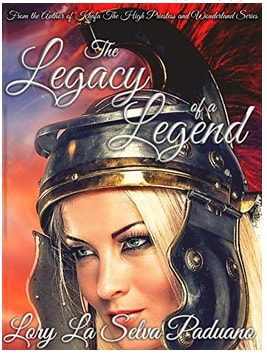


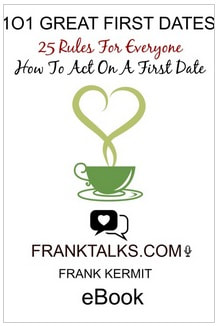




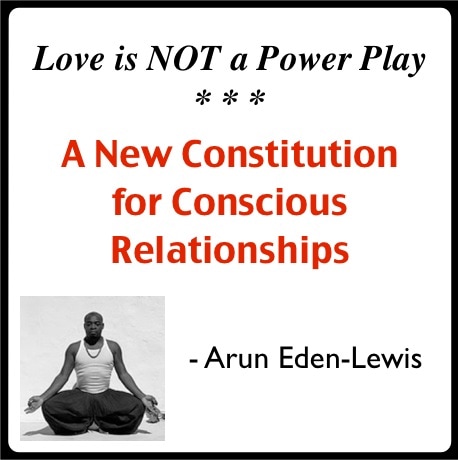
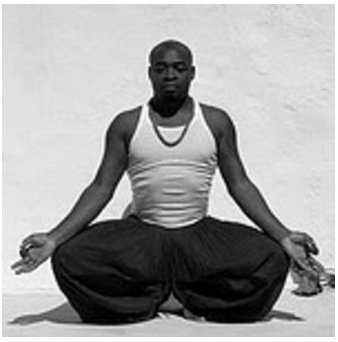










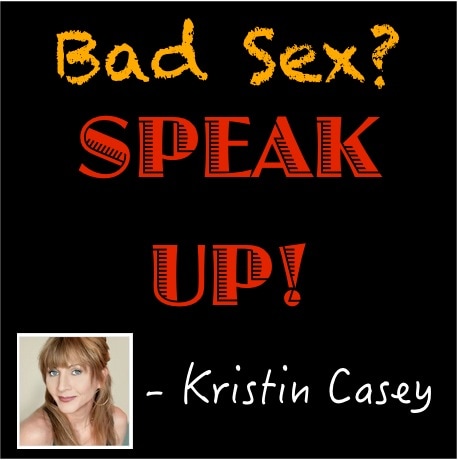

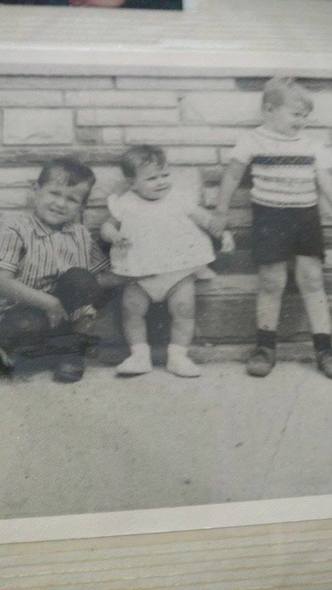
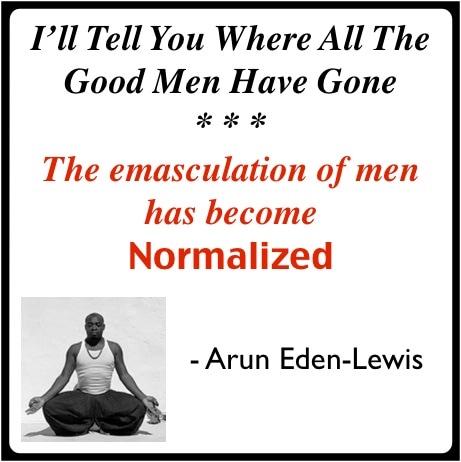
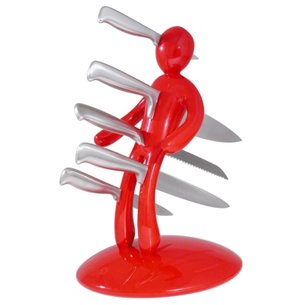

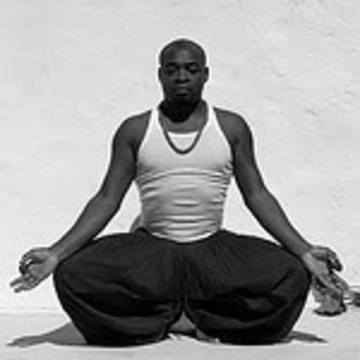
 RSS Feed
RSS Feed


